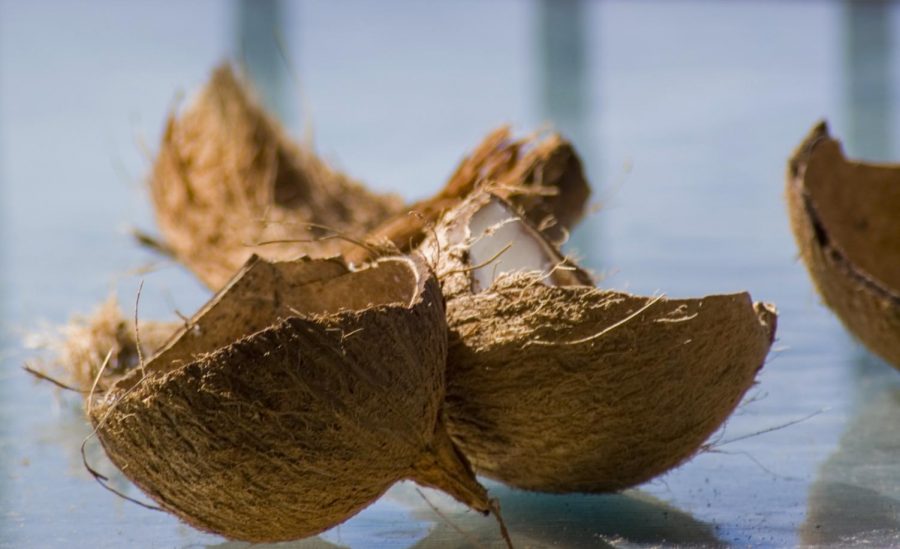Cracking down on great coconut oil debate, sort of
Professor of nutrition advises against strong language about food
Coconut oil is a popular health trend used among celebrities and beauty gurus, but the high concentration of unsaturated fats has sparked a nutritional controversy.
August 28, 2018
Coconut oil is fantastic. It’s a superfood full of fatty acids that can promote fat loss, better brain function and longer life, according to heathline.com. The healthy saturated fats in coconut oil decrease the chance of heart attack and other cholesterol-related illnesses, according to the Huffington Post. Coconut oil has been endorsed by countless celebrities, including Gwyneth Paltrow and Dr. Oz.
We should replace all oils with coconut oil and put it in everything we eat, right?
Or so we thought. Karin Michels, professor at the Harvard T.H. Chan School of Public Health, posted a lecture to YouTube titled “Coconut oil and other nutritional errors” early July. In this lecture, she referred to our beloved superfood as “pure poison” and “one of the worst foods you can eat.”
This lecture stirred up a lot of controversy in food fanatics and coconut-lovers and haters alike. Coconut oil opponents, including Michels, say it is purely saturated fat, and incorporating too many saturated fats into our diet increases both the good and bad types of cholesterol.
And now we don’t know how to proceed: should we completely remove coconut oil from our diets or continue to slather it on everything we eat?
The simple answer is neither. Pablo Monsivais, associate professor in the Department of Nutrition and Exercise Physiology, argues against focusing on singular foods as the cause and solution for all our ailments.
“This fixation we have of blaming or praising one food is ridiculous,” Monsivais said. “It doesn’t help our understanding of how to be healthy, and it makes people forget that health comes from balance and forming healthy patterns.”
A variety, he said, is what allows our body to take in all the vitamins, minerals and other nutrients it needs.
Monsivais condoned using coconut oil as a replacement for lesser alternatives, such as putting it on toast rather than butter or margarine – specifically the latter as it’s full of trans fats. In the argument of coconut oil versus olive oil, however, olive oil wins, as it contains both poly- and monounsaturated fatty acids our bodies don’t usually get enough of.
Monsivais is not pro- or anti-coconut oil — he’s pro-moderation.
“Coconut oil is not a superfood, and it’s not a poison either,” he said. “It’s better than some oils, but only becomes a problem when ingested in too large of quantities. It’s the dose that makes the poison.”
According to the FDA, less than 10 percent of daily calories should come from saturated fats — about 200 calories based on the average adult. One tablespoon of coconut oil contains 12 grams of saturated fat at 117 calories, approximately 60 percent of the allotted calories from saturated fats.
Monsivais argued that too strong of language when it comes to food can be misleading and encourage people to make the wrong choices for their diets.
“I’m glad that people are passionate about nutrition,” Monsivais said. “It’s the foundation of health in my opinion, and when it’s done right promotes a long and healthy life. It’s important to stop wasting time blaming and praising singular ingredients, and we should start focusing on habits and our diets as a whole.”









